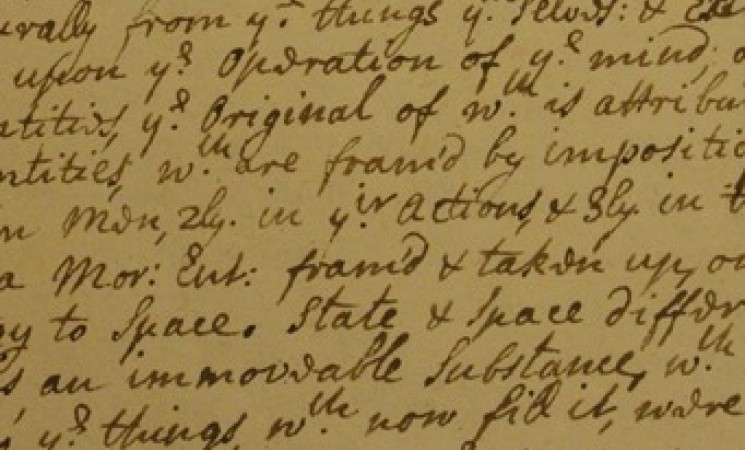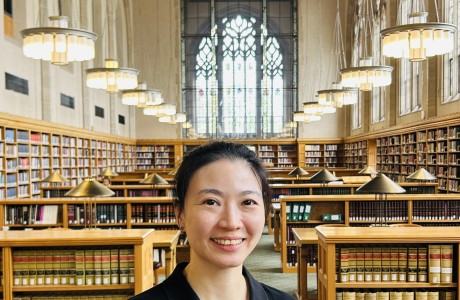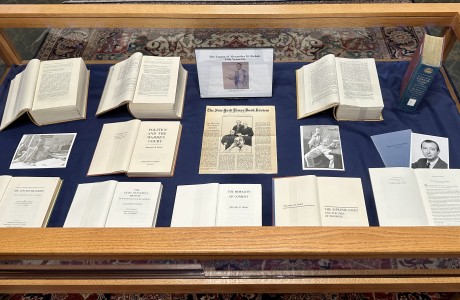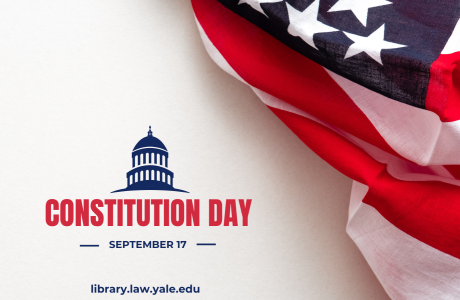The Taussig Collection: William Worth's Notebook

Annotated student books and student notebooks form another trove among the Beinecke’s Taussig manuscripts. A wide range of these can shed light on the structure of legal education, classroom interpretations of the law and noted lecturers, and the reading and notetaking habits of young law students.
Some student books in the collection provide views of a broader humanities education. A student notebook of William Worth (1677-1742), a churchman and classical scholar, offers one example. Much like Blackstone later, Worth became a fellow of All Souls College, Oxford, but continued on to earn his B.D. in 1705 and a D.D. in 1719. From 1705 he was also archdeacon of Worchester, and added benefices over a full career. As a scholar, Worth edited Tatiani Oratio ad Graecos, Hermiae irrisio gentilium philosophorum (1700) – also online – and assisted on other works.
Worth was perhaps the kind of “monastic” student Blackstone believed Oxford should no longer cater to, though his notebook reflects moral and historical readings appropriate to the humanities rather than divinity. Among Worth’s readings was also law, in an abridged Of the Law of Nature and Nations (1672) by Samuel Pufendorf (1632-94). The text is a reminder that fundamental legal works on natural law and the law of nations were not just abstract “legal philosophy” but also important for early modern and Enlightenment moral theory, and sat comfortably beside exemplary works of ancient and contemporary history on student shelves.
The Worth notebook at the Beinecke, dated January 31, 1714, contains excerpted works ranging from the serious to the somewhat whimsical. The notebook also has two beginnings, being written front-to-back, flipped over and written back-to-front, with a run of blank pages in the middle. The works, which Worth closely paraphrased or copied without adding his own opinions, partly reveal the balance of history and moral theory, rhetoric, philosophy and literature, with which an Oxford student might be familiar. The excerpts are from:
“An Abridgement of Pufenforf’s Law of Nature and Nations”; “The Gentleman’s Calling” by John Fell (1625-86), an Oxford Dean and disciplinarian; a “Life of King Henry VIII”; Aristotle’s Rhetoric; Cicero’s “Treatise concerning Old-Age” (De senectute); a fragment on “Reading History”; “Mr. Locke on Humane Understanding”; “The History of the First Earl of Cork”; the “last will and testament” of William Petty (1623-87), apparently the English economist, scientist and philosopher; various recipes, including how to make invisible ink, how to marinate 100 herrings, and how to make soap-cakes; and a few copied poems and letters.
–RYAN GREENWOOD, Rare Book Fellow


